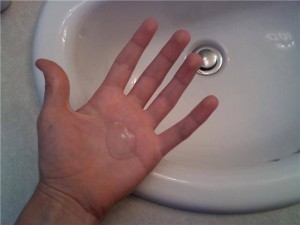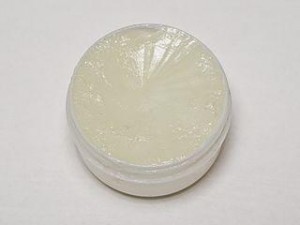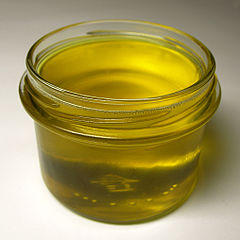Household Irritants For Contact Dematitis
Human skin is resilient but it can easily become irritated by substances that are relatively harmless. Even a person without allergies may suffer with skin irritation if they are exposed to a strong substance for too long. This type of skin problem is known as irritant contact dermatitis. It simply means that the skin becomes inflamed as a result of contact with some substance that irritates it. Sometimes the irritant can be as innocuous as water or even a person’s own sweat.
Most of us do not realize that irritant contact dermatitis may be caused by everyday household items. It just depends on individual tolerance to a substance. If you are experiencing irritant contact dermatitis then you need to monitor what may be triggering your symptoms. These symptoms include itching of the skin, redness, burning, peeling or cracking of the skin, excessive dryness and sometimes swelling. All of these symptoms are a result of inflammation, which is a protective mechanism to reduce damage to the tissue, and the action of the irritant itself on the skin surface.
It is therefore important to take note of these symptoms and reduce exposure to possible irritants when it can be identified. Even if a substance seems harmless, constant contact with it when your skin is already irritated could damage the skin severely, cause scarring or lead to infections. Irritants can damage the skin – some quicker than others. It must be differentiated from allergens which are substances that cause the immune system to react normally to otherwise harmless substances.
Detergents and Soaps
Top on the list of household triggers are detergent and soaps. Some detergents that are strong alkalis or acids will irritate the hands even with short term exposure. But some of the milder varieties that we think are safe can still be a trigger. We wash our hair and body, our clothes and dishes with these substances so naturally it should be least likely to irritate us. Not only does it touch our skin but we also ingest minute amounts unknowingly. However, dishpan hands or housewife’s eczema is a type of irritant contact dermatitis that occurs with frequent exposure to soap or detergents combined with the hands being in the water for long periods.
Antiseptics
Most antiseptics tend to irritate the skin in time, be it an antiseptic soap, detergent, surface cleaner or wound application. Antiseptics work by destroying microbes. It can also damage human cells but the tough outer protein layer of the skin normally prevents it from making contact with living tissue. Those that are intended for use on objects are naturally stronger and less tolerable for the skin. But even the milder antiseptics like hand washes and soaps may be a problem since it causes the skin to become excessively dry and strong anti-microbial substances irritate the skin.
Toiletries
Many toiletries contain fragrances and preservatives which can irritate the skin. This includes some soaps, perfumes, deodorants and even skin lotions. These substances are more of an irritant for some people, especially those who are allergic to it, have damaged or sensitive skin. However, it can affect any person over time particularly when applies to areas with delicate skin like on the face, armpits and in the groin region. As a general rule, if a specific skin application is irritating the skin it is best to change to an another brand or try an unscented variety or one without preservatives.
Soil
Soil is another major irritant to the skin particularly when it is not washed off as soon as possible. It is one of the problems for gardeners and the reason why gloves made of impervious materials are necessary when working with soil. The soil itself is not the only problem. Water within it as well as plant nutrients, herbicides or pesticides in the soil can also irritate the skin. But even if you are not getting your hands dirty with soil, small amounts easily enter the home and settles on surfaces and clothes. Normally these minute amounts do not pose a problem but when poor personal hygiene is an issue it can become an irritant due to the prolonged exposure to the skin.
Water
It may be surprising to discover that water is an irritant. After all about 60% of the human body is composed of water. It is necessary for life and is used for bathing among other purposes in human life on a daily basis. However, prolonged exposure to even pure water without any chemicals irritates the skin. Although human skin is made up of a waterproof outer layer, this resistance decreases after about 30 minutes in direct contact with water. It is the reason why skin wrinkles during a long bath but it can even irritate the skin if small quantities are not dried thoroughly after washing, bathing or getting wet. ‘Hard’ chalky water and chlorinated water tend to be more of an irritant.
Paint And Cement
Paint and cement are two known irritants in the household. While paint that is new and properly applied to a surface may not be as much of a problem, it can still be an irritant when wet or flaking off. It is not only paint on the walls but also pain on furniture, objects and surfaces. Cement that is not covered with paint or some other material like tiles can also be an irritant even when it is dry. Apart from being an abrasive, the compounds within cement can irritate the skin with prolonged contact. It is not only a problem for people who deal with cement and paint but also to the occupants within a house.
Oils And Grease
Lubricants are present on a number of surfaces and objects within the home and its not only on moving parts. Oils and grease are sometimes used during the assembly of certain objects, particularly metals, and residue may linger for long periods thereafter. It can act as an irritant when it makes contact with the skin and is not removed quickly and thoroughly. Normally edible oils do not pose as much of a problem for the skin but over prolonged periods and especially after having being used in cooking these oils can also be an irritant. Even the natural skin oil can be an irritant as it traps dust, dead skin cells and microbes in the air but with good personal hygiene it is removed before it irritates the skin.




